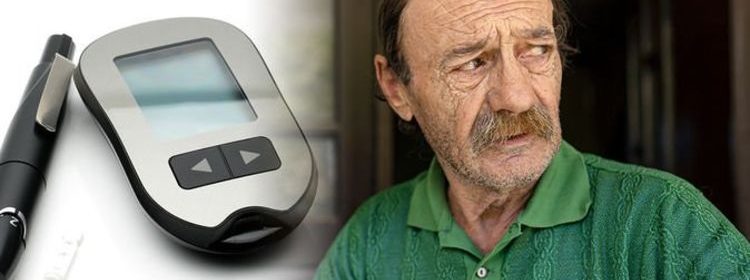Type 2 diabetes warning: Uncontrolled blood sugar levels could diminish one of your senses

This condition occurs when the body struggles to metabolise sugar (glucose). There are two ways this can happen (explained below). Additionally, high blood sugar levels can cause damage to one of your senses.
Inside the body, the pancreas is responsible for creating the hormone insulin.
The Mayo Clinic explained that insulin “regulates the movement of sugar into your cells”.
Sugar is created from the foods you eat, and it’s meant to be used by the cells within your body as its energy source.
When a person has type 2 diabetes – knowingly or not – the body’s cells become resistant to insulin or the pancreas doesn’t make enough of the hormone.
Over time, the amount of sugar in your blood can accumulate, causing damage.
Risk factors for developing type 2 diabetes include being overweight, inactivity and having a genetic susceptibility.
Those with this condition are more likely to encounter hearing impairment.
The NHS outlines the signs and symptoms of hearing impairment as the following:
“Difficulty hearing other people clearly, and misunderstanding what they say, especially in noisy places.
“Asking people to repeat themselves. Listening to music or watching television loudly.
“Having to concentrate hard to hear what other people are saying, which can be tiring or stressful.”
Your sense of hearing isn’t the only complication that can arise from uncontrolled blood sugar levels.
Another sense that may be affected is your sight. The Mayo Clinic attested that diabetes increases a person’s risk of cataracts, glaucoma and blindness.
The condition can also affect a person’s sense of touch, with nerve damage causing an array of problems.
For example, nerve damage can appear as a burning sensation that begins at the tip of your fingers and toes.
In order to prevent complications of type 2 diabetes, it’s important to lead a healthy lifestyle.
The Mayo Clinic encourages diabetics – and those hoping not to develop the condition – to adopt regular behaviours.
For instance, becoming more active is the easiest thing you can do. It’s recommended to move about for at least 30 minutes every day.
By introducing a daily brisk walk into your routine, you’ll be on your way to a healthier lifestyle and better health.
An increase in activity levels is likely to help people to lose weight – and shedding five percent of your body weight can reduce the risk of diabetes.
This is best accompanied by a healthy diet – full of fruits, vegetables and whole grains.
Some people diagnosed with type 2 diabetes may benefit from prescribed medication.
If you’re unsure whether you may have diabetes, early symptoms include: increased thirst; frequent urination; blurred vision; slow-healing sores; and increased hunger.
Source: Read Full Article


